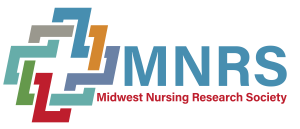Midwest Nursing Research Society’s Commitment to Diversity, Equity, Inclusion, and Belonging (DEIB)
February 23, 2024
The Midwest Nursing Research Society (MNRS) is committed to integrating diversity, equity, inclusion, and belonging principles throughout all areas of our organization, including membership, engagement, scholarship, dissemination, finances, and leadership core values. Our commitment to building and maintaining a diverse, equitable, and inclusive organization aligns with our mission and vision to engage diverse scholars, advance science, and drive dissemination to "improve health equity for all people”. As a result, we will develop our membership to be able to critically analyze and solve complex social and health issues facing individuals, families, and populations in the Midwest, nationally, and globally.
Diversity
is the range of salient, socially constructed, and value-laden identities and experiences that include, but not limited to, ability, age, education, ethnicity, gender role, gender identity, national origin, race, religious beliefs, spirituality, sex, sexual identity, sexual orientation, socioeconomic status, and veteran status.
Equity
is recognizing historical and current systemic inequalities and discrimination and providing opportunities to correct these imbalances to achieve an equal or similar outcome.
Inclusion
is empowering all members to have access to information, resources, and organizational involvement.
Belonging
is the individualized and personal experience of connection that is influenced by MNRS’s culture that fosters social interactions (e.g., feeling welcomed, seen, heard, and respected) and enhances members’ willingness, desire, and ability to engage meaningfully in MNRS activities, initiatives, and actions.
The principles that undergird our commitment to DEIB at MNRS are:
- Everyone belongs.
- The diversity of our membership makes us a stronger organization.
- We value and prioritize our relationships with members to build a collaborative MNRS community.
- We acknowledge our identities are multi-faceted, dynamic, and historically situated, contributing to positions of power and privilege and/or oppression.
- We recognize these power dynamics and will address them to ensure each person feels valued in the organization.
- We center inclusion and co-creation in all the work we do as an organization.
- We believe that it is everyone’s responsibility to challenge biases, discrimination, and systemic oppression.
Principles 1 – 6 are adapted from the Othering & Belonging Institute’s Belonging Design Principles: A resource guide for building belonging (2023). https://belonging.berkeley.edu/belongingdesignprinciples
